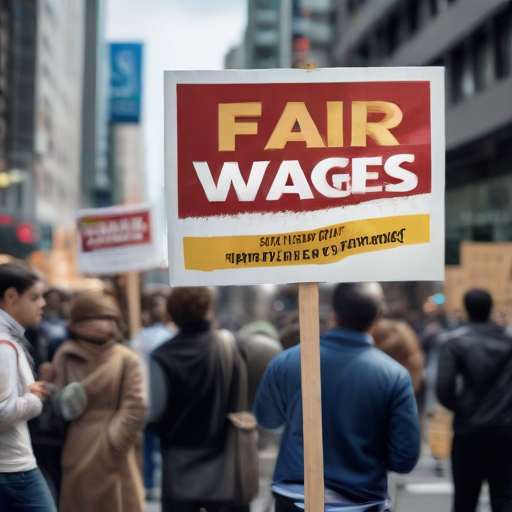Samsung employees, demanding improved working conditions and higher wages, gathered in large numbers for a rally in South Korea on Monday. This demonstration marks the ongoing strike’s third week, which has seen significant participation from the National Samsung Electronics Union (NSEU).
Approximately 1,200 NSEU members marched through Samsung’s Giheung campus in Yongin, signaling their determination. This rally followed initial wage discussions between the union and Samsung, which took place last Friday.
The NSEU initially launched an indefinite strike on July 8 after earlier efforts to secure better workplace conditions were unsuccessful. While the union represents over 30,000 employees, it remains unclear how many are actively participating in the strike. Nonetheless, this action is noted as the largest strike in Samsung’s history.
Samsung Electronics has reported a remarkable increase in second-quarter revenue projected to surge by more than 1,450% year-over-year, largely driven by advancements in artificial intelligence. Additionally, the company indicated a ten-fold increase in profits during the first quarter of 2024. Despite these impressive financial returns, workers claim they have not seen corresponding increases in their wages.
Many of the striking employees are involved in Samsung’s foundry operations, where they manufacture some of the world’s most advanced computer chips. The company has a reputation for being resistant to union activities and lacks substantial experience in labor negotiations with its workforce.
Experts note the broader implications of this strike. Professor Vladimir Tikhonov from the University of Oslo emphasized that if Samsung employees achieve their demands, it could serve as a significant empowerment for labor movements throughout South Korea.
This ongoing strike highlights the pressing issues of fair compensation and working conditions within major corporations, especially in industries experiencing immense financial success. It serves as a reminder of the importance of worker rights in ensuring that those who contribute significantly to a company’s success also share in its rewards.
In light of the challenges posed, there is hope that this collective action could inspire other workers across various sectors to advocate for better conditions, ultimately leading to a more equitable work environment in South Korea and beyond.
